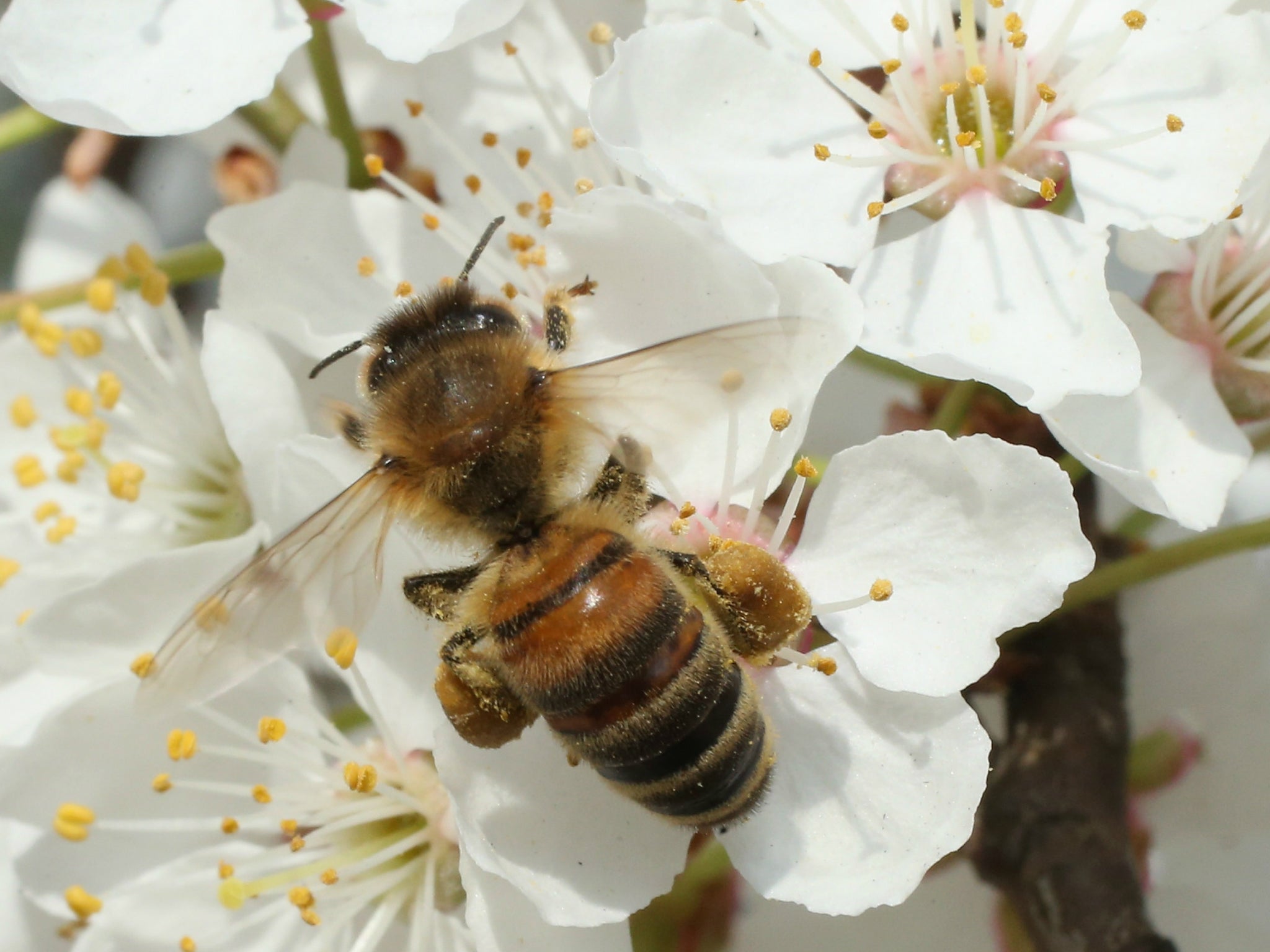Trump administration lifts ban on bee-killing chemicals and GMO crops in wildlife refuges
This is the latest move by the Trump administration to dismantle Obama-era environmental protections

Your support helps us to tell the story
From reproductive rights to climate change to Big Tech, The Independent is on the ground when the story is developing. Whether it's investigating the financials of Elon Musk's pro-Trump PAC or producing our latest documentary, 'The A Word', which shines a light on the American women fighting for reproductive rights, we know how important it is to parse out the facts from the messaging.
At such a critical moment in US history, we need reporters on the ground. Your donation allows us to keep sending journalists to speak to both sides of the story.
The Independent is trusted by Americans across the entire political spectrum. And unlike many other quality news outlets, we choose not to lock Americans out of our reporting and analysis with paywalls. We believe quality journalism should be available to everyone, paid for by those who can afford it.
Your support makes all the difference.Donald Trump 's administration reversed an Obama-era policy banning genetically modified (GMO) crops and use of bee-killing insecticides in protected wildlife refuges.
The policy reversal will affect more than 50 wildlife refuges across the country out of a total 560 which covers approximately 150m acres (607,000 sq km).
Jamie Rappaport Clark, CEO of charity Defenders of Wildlife, told Reuters: “Industrial agriculture has no place on refuges dedicated to wildlife conservation and protection of some of the most vital and vulnerable species”.
In 2014, the National Wildlife Refuge System issued a memorandum announcing it would phase out GMO seeds and a certain category of chemicals that was thought to kill off critical bee populations in those protected areas.
Some of the refuges already allow limited agricultural activities and farming, particularly if growing a certain crop in the area would improve the ecosystem of the refuge.
However, the new policy, outlined in a memo by the US Fish and Wildlife Service, does not ban farmers from planting so-called “biotech” crops like corn or soybeans engineered to resist insects and weeds, as the previous ban did.
The Obama-era ban had also prohibited the use of neonicotinoid pesticides, or neonics, which research has shown contribute to killing wild bees and other pollinating insects crucial to the refuge ecosystem.
The use of these pesticides will be made on a case-by-case basis according to the Fish and Wildlife memorandum.
US Interior Department Secretary Ryan Zinke has continuously worked to expand hunting rights on these protected lands and Fish and Wildlife is overseen by his agency.
Fish and Wildlife Service Deputy Director Greg Sheehan said in the memorandum the policy reversal “was needed to ensure adequate forage for migratory birds, including ducks and geese – favoured and hunted by sportsmen on many of the nation’s refuges,” Reuters reported.
Mr Sheehan also argued the bee-killing pesticides and GMO crops were necessary to “maximise production” of farming done in refuges.
He said in the memorandum: “Normal human expansion in our nation will continue to eliminate wildlife habitats that have previously been relied upon for successful wildlife restoration. Therefore, our professional wildlife managers will need to work more diligently than ever to ensure that those remaining important places have the best available food resources and other important conditions to ensure [wildlife] can persist.”
Ms Clark said Mr Sheehan and the Trump administration’s decision “an insult to our national wildlife refuges and the wildlife that rely on them.”
The move is just one of many Mr Trump has made to dismantle the environmental legacy of Mr Obama. In June 2017, Mr Trump began the process of withdrawing the US from the Paris Agreement on climate change, signed by nearly 200 countries in 2015 to curb carbon emissions and contain global warming to 2 C.
The Environmental Protection Agency (EPA) also repealed the Clean Power Plan, which if implemented would have reduced carbon emissions of US power plants by nearly a third by 2030.
Join our commenting forum
Join thought-provoking conversations, follow other Independent readers and see their replies
Comments